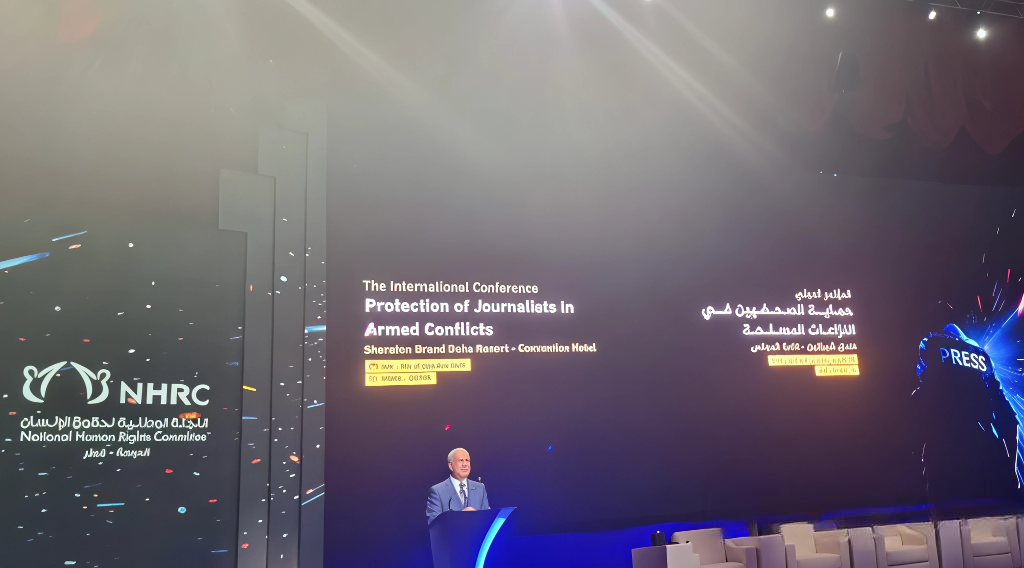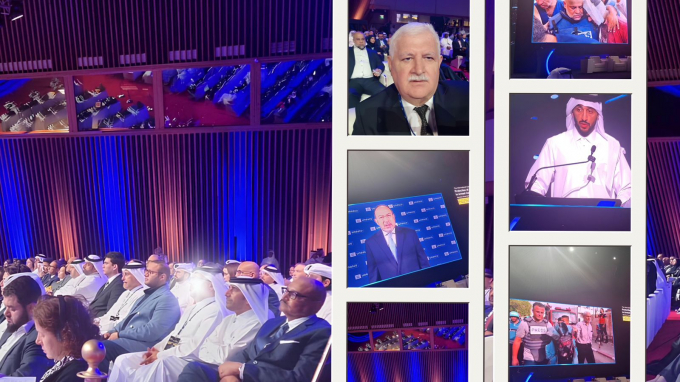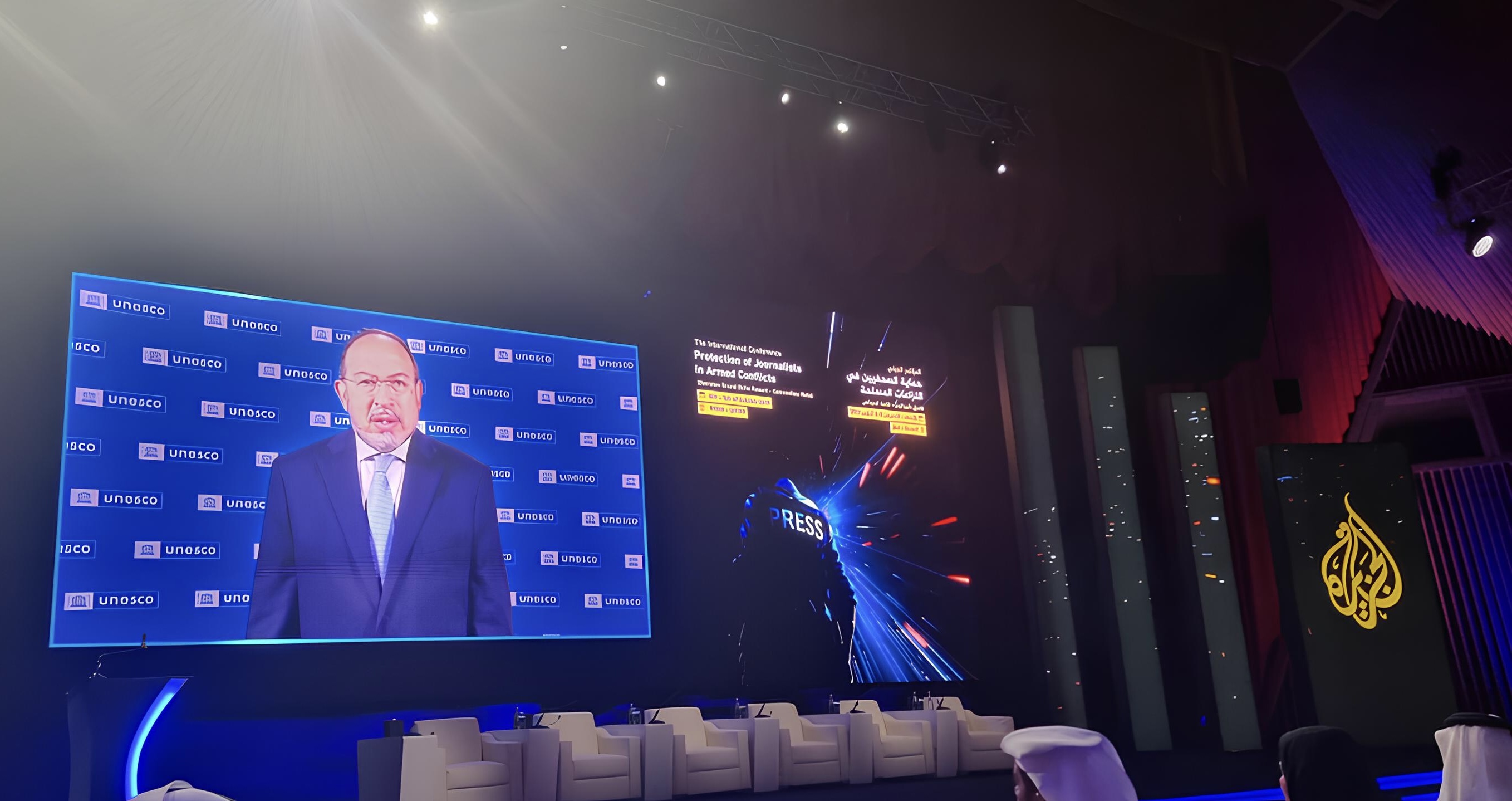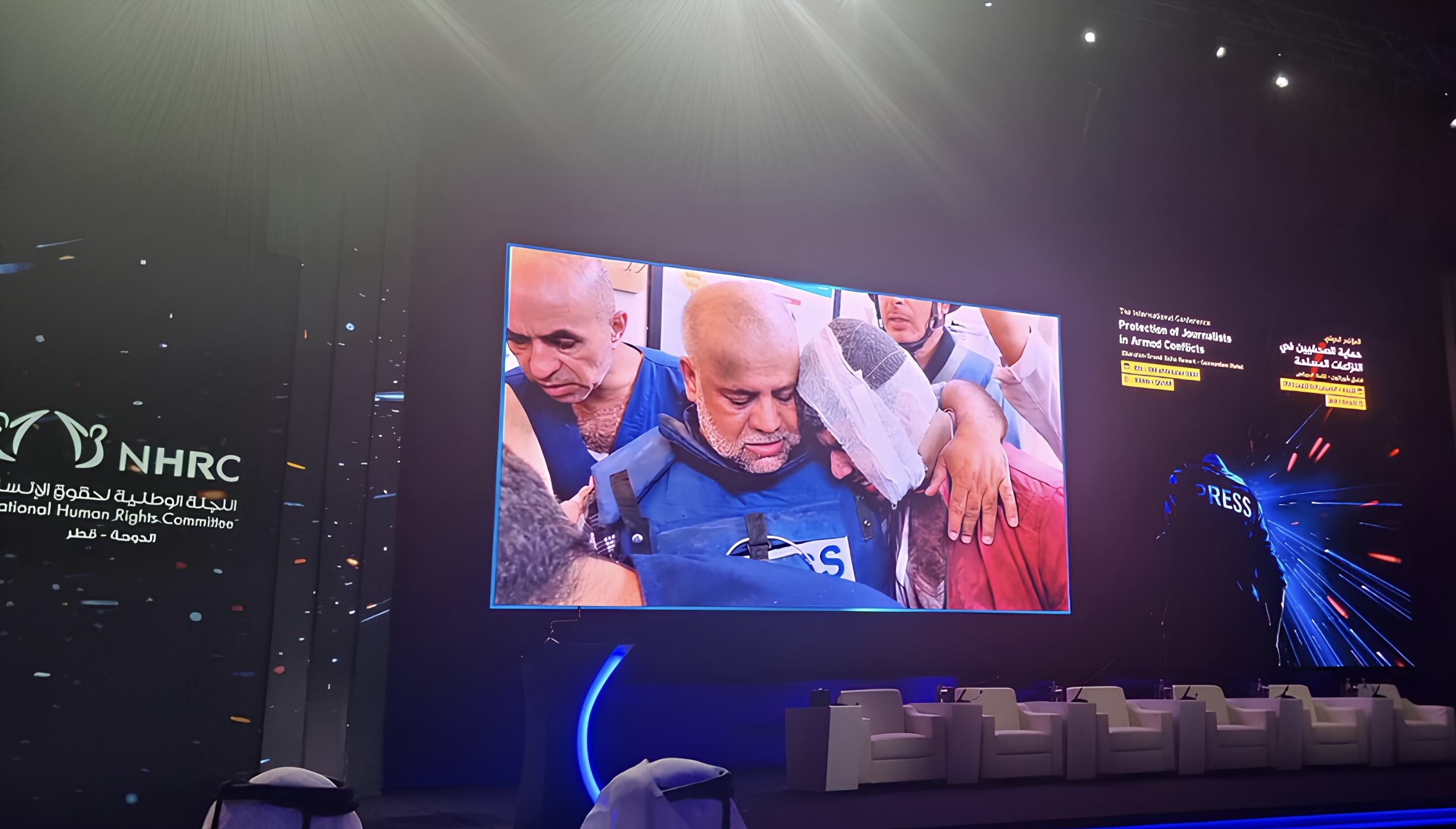In Doha, the capital of Qatar, the National Human Rights Committee (NHRC) of the State of Qatar, in collaboration with the Al Jazeera Centre for Public Liberties and Human Rights, a division of Al Jazeera Media Network, organized an International Conference on the Protection of Journalists in Armed Conflicts.
The conference, held on October 8–9, brought together heads of international and regional independent organizations working to strengthen press freedom and protect journalists, experts from relevant UN mechanisms and regional systems, as well as members of the diplomatic corps accredited in Qatar, representing countries that support journalist safety.
From Azerbaijan, Umud Mirzayev, President of the International Eurasia Press Fund, is also participating in the conference.
The conference opened with a minute of silence in memory of journalists who have lost their lives while carrying out their professional duties in conflict zones around the world.
In her opening remarks, Maryam bint Abdullah Al Attiyah, Chairperson of Qatar’s National Human Rights Committee, and Sheikh Nasser bin Faisal bin Khalifa Al Thani, Director-General of Al Jazeera Media Network, expressed deep sorrow over the increasing number of journalist fatalities globally.
Maryam bint Abdullah Al Attiyah emphasized that the conference was convened in response to the deliberate targeting of media professionals in many parts of the world. She stressed that human rights organizations worldwide must stand against such targeted attacks on journalists.
“The killing of journalists is the destruction of the truth they strive to convey to the world. It is not only a violation of the fundamental right to life but also a violation of the right of others to access information and truth,” she said.
Sheikh Nasser bin Faisal Al Thani called on the international journalism community and human rights defenders to unite in protecting journalists on the front lines. He noted that Al Jazeera has lost several staff members while covering conflicts.
He urged the international community to take a firm stance against these systemic crimes and to ensure that journalists can operate without fear of being targeted or intimidated.
The two-day International Conference will focus on the human and social dimensions of violations against press freedom, as well as the impact of targeting and legal violations on journalists’ families, communities, colleagues, and the broader media environment.
The conference will also explore ways to strengthen international protection mechanisms, including the adoption of a proposal to establish international fact-finding committees to investigate violations against journalists in armed conflicts.
A total of seven plenary sessions will be held during the conference, conducted in both Arabic and English, covering the following key topics:
- Journalists and the Media – Witnesses and Victims
- Legal Frameworks for the Protection of Journalists and the Media in Armed Conflicts
- The Role of International and National Mechanisms in Journalist Protection – Realities and Efforts to Address Violations
- Initiatives of States, Organizations, and Civil Society – Challenges and Opportunities
- Accountability, Justice, Compensation for Victims, and Combating Impunity – Realities and Aspirations
- Foundations for Partnerships Between the Media and International Organizations: The Way Forward
- Closing Statement and Conference Recommendations: “The Third Doha Declaration on the Protection of Journalists in Armed Conflicts”
The International Conference on the Protection of Journalists in Armed Conflicts is being held within the framework of the Doha Declaration on the Protection of Journalists, which was adopted in March 2016 during the World Congress of the International Press Institute (IPI) hosted by Al Jazeera Media Network in Doha.
The Doha Declaration has been officially welcomed in resolutions adopted by the United Nations Human Rights Council in 2016, 2018, 2020, and 2022 concerning the safety of journalists. It is also supported by the Finland Declaration, adopted in May 2016 at an international conference organized by UNESCO to mark World Press Freedom Day.
The Doha Declaration has not only been supported by over 70 media institutions and organizations worldwide, but has also been signed by more than 1,500 journalists across the globe.





